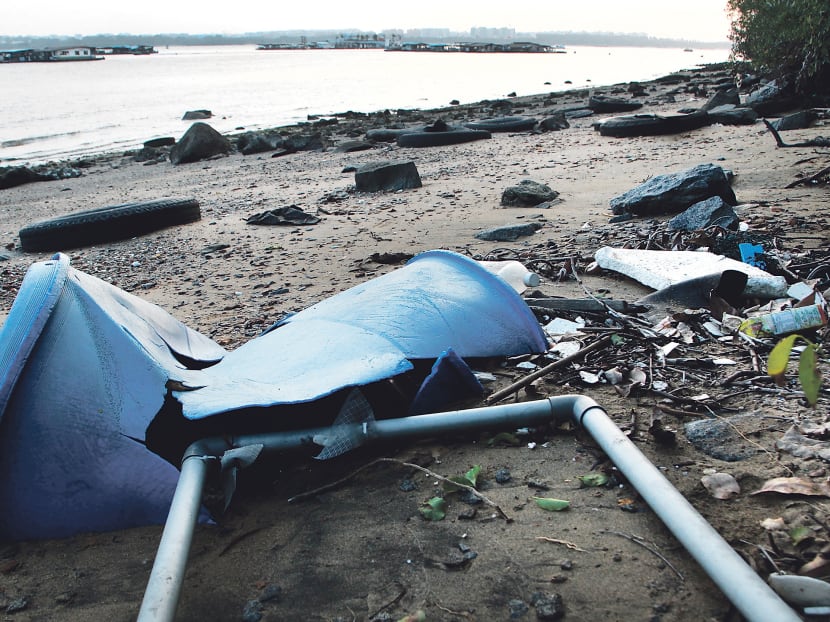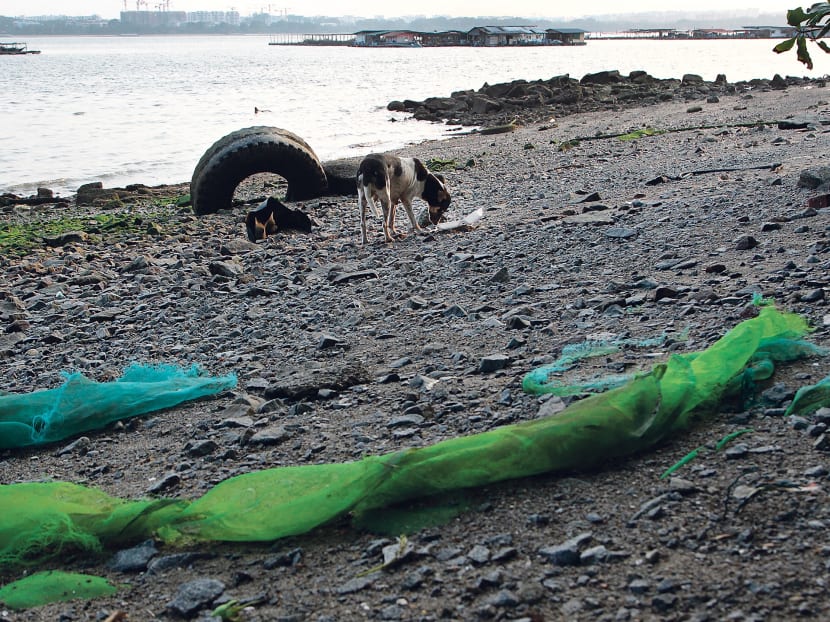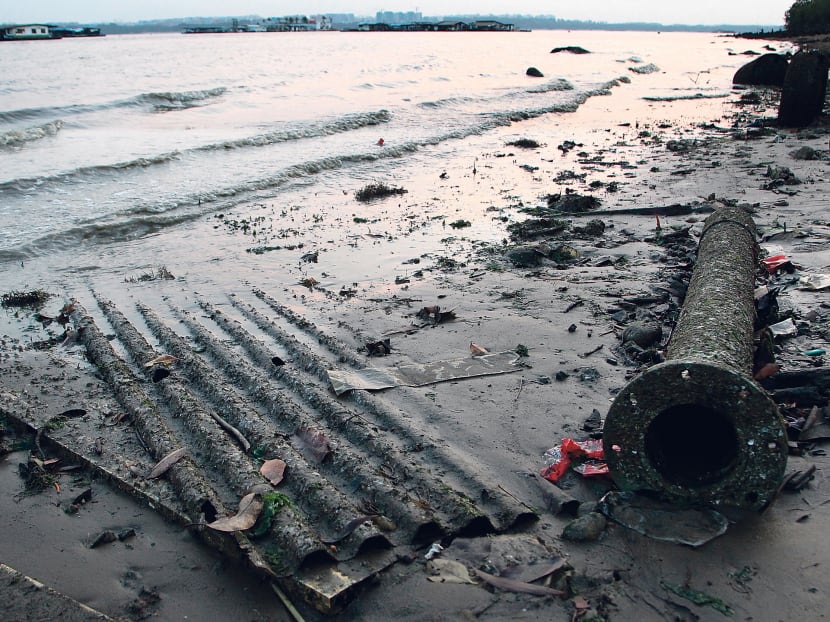Fish farmers not keen on waste collection services
SINGAPORE — As the island’s shores continue to be plagued by coastal trash, some environmentalists have singled out offshore fish farms as one of the culprits, with nature enthusiast Ria Tan, who runs the website WildSingapore, suggesting daily waste collection services for the farms.



SINGAPORE — As the island’s shores continue to be plagued by coastal trash, some environmentalists have singled out offshore fish farms as one of the culprits, with nature enthusiast Ria Tan, who runs the website WildSingapore, suggesting daily waste collection services for the farms.
However, fish farmers whom TODAY spoke to were lukewarm about the idea, pointing out that they would incur additional cost. Pointing a finger further north to farms along the Malaysian coastline, the Singapore farmers said they had been disposing of their trash properly.
Currently, the Republic’s fish farmers along the western Johor Straits can dispose of their rubbish at waste collection points at Lim Chu Kang jetty, while those along the eastern Johor Straits can do so at the waste collection centre at the new Lorong Halus jetty, the Agri-Food and Veterinary Authority (AVA) said.
In October last year, the AVA had explored the option of weekly waste collection services for fish farmers along the eastern Johor Straits and estimated that the farmers would have to pay S$160 a month for the services.
In response to queries, an AVA spokesperson said the authority was mindful that such services would increase operational costs for farmers. “Nonetheless, the AVA will continue to consult farmers on the current waste disposal arrangements and need for door-to-door waste collection services on a regular basis,” the spokesperson said.
Ms Tan has written on her website about items — blue drums, green netting, tyres and sofas, among other things — that she has found on Pulau Ubin, which seemed to have come from the fish farms opposite the island. “Yes, there are many sources of marine trash, but ... that does not mean we should not provide trash collection services for businesses that are licensed by the government and supported by tax funds,” she told TODAY.
She questioned why farmers were not provided daily door-to-door trash collection services like households, businesses and ships docked at ports.
But fish farmers here are not keen on paying for such services. On Ms Tan’s suggestion, Mr Phillip Lim, former chairman of the now-defunct Singapore Marine Aquaculture Cooperative, said: “Unless it’s free of charge ... (otherwise) if you want to charge us, it’s an (added) burden to the farmer.”
Farmers also noted that at times, waves created by high-speed vessels could cause bulky items such as blue drums and pieces of wood to be washed away from the farms. “They think it’s trash, (but) these are our expenditure too,” said Mr Lim, who noted that each blue drum could cost up to S$20.
“Normally, our waste, we would carry to the shore and throw into the National Parks Board rubbish (bins). There’s no issue … we are educated, responsible people,” he added.
Most of the farmers whom TODAY spoke to said they dispose of their waste in these bins between every two days and once a week.
Mr Teh Aik Hua, who owns two fish farms in Sembawang and Pasir Ris, said a lot of the trash came from Malaysia, including items such as sofas, palm oil and plastic bags. Agreeing, Mr Joseph Wee, owner of Blue Marine Fish Farm off Changi Point, nevertheless suggested that the authorities encourage fish farmers to recycle or reuse their trash. For example, they could place unwanted tyres on the seabed to create artificial reefs.
Mr N Sivasothi, lead coordinator of International Coastal Cleanup, Singapore, noted that while it was difficult to determine the proportion of trash that Singapore fish farms contribute, some of the litter found on the southern coastlines of Pulau Ubin, in particular, can be traced to the fish farms opposite. Not much trash from the Johor farms will end up there because of the geography of the island. “We cannot escape (from the fact) that the (Singapore) farms (along the eastern Johor Straits) definitely have a significant contribution to (the) trash,” he said.






